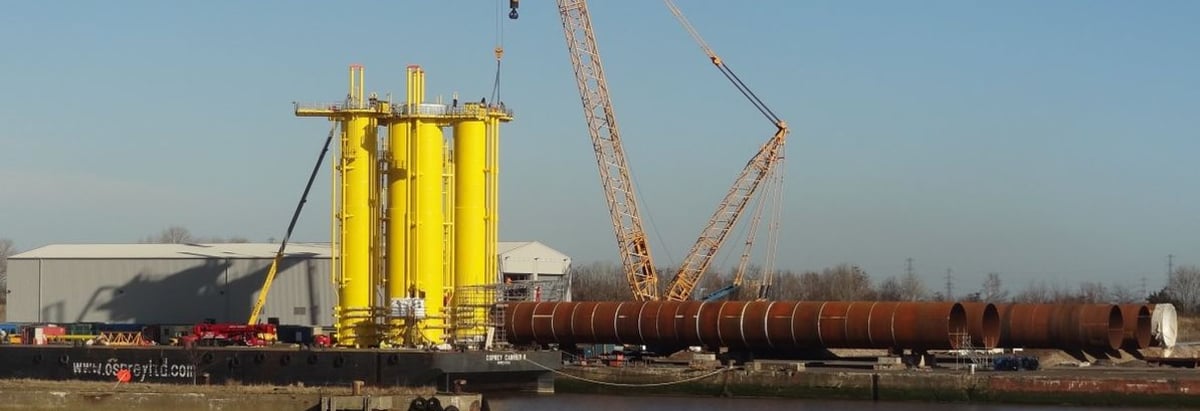- United States
- /
- Energy Services
- /
- NYSE:HAL
Halliburton (NYSE:HAL) Faces 7% Price Drop Over Last Month Amid Broader Market Turmoil

Reviewed by Simply Wall St

Halliburton (NYSE:HAL) experienced a 7% decline in its share price over the last month, coinciding with broader market turmoil. The Dow Jones Industrial Average fell 4% while Halliburton's operations, tied heavily to the energy sector, were impacted by an overall 8% drop in significant energy stocks like Exxon and Chevron. Additionally, concerns about a global trade war and subsequent economic slowdown added pressure, reflected in Halliburton's price movement. Market sentiment was also influenced by geopolitical tensions influencing international trade, particularly impacting companies like Halliburton that are reliant on global operations within volatile sectors.
You should learn about the 2 warning signs we've spotted with Halliburton.

Despite recent short-term volatility, Halliburton's total shareholder returns over the past five years have reached 194.56%. Key developments have supported this performance. Noteworthy is the significant contract with Petrobras announced in January 2025, which bolstered Halliburton's global presence and operational capacity. Earlier, Halliburton's collaboration with Sekal AS in February 2025 introduced a cutting-edge automated drilling system, enhancing operational efficiency. The implementation of innovative technologies like the electric simul-frac fleet in the Permian Basin in December 2024 also underscored Halliburton's commitment to sustainability and operational proficiency.
The past five years have also seen Halliburton's commitment to returning capital to shareholders through dividends and share buybacks, with a buyback of 282.92 million shares since the program’s beginning. Despite challenges in the North American market, the expansion into regions such as Brazil and Namibia, along with advancements in drilling technologies, has contributed positively to Halliburton's long-term returns, surpassing many competitors despite underperformance against the US Energy Services industry over the last year.
Dive into the specifics of Halliburton here with our thorough balance sheet health report.
This article by Simply Wall St is general in nature. We provide commentary based on historical data and analyst forecasts only using an unbiased methodology and our articles are not intended to be financial advice. It does not constitute a recommendation to buy or sell any stock, and does not take account of your objectives, or your financial situation. We aim to bring you long-term focused analysis driven by fundamental data. Note that our analysis may not factor in the latest price-sensitive company announcements or qualitative material. Simply Wall St has no position in any stocks mentioned.
Valuation is complex, but we're here to simplify it.
Discover if Halliburton might be undervalued or overvalued with our detailed analysis, featuring fair value estimates, potential risks, dividends, insider trades, and its financial condition.
Access Free AnalysisHave feedback on this article? Concerned about the content? Get in touch with us directly. Alternatively, email editorial-team@simplywallst.com
About NYSE:HAL
Halliburton
Provides products and services to the energy industry worldwide.
Very undervalued with excellent balance sheet and pays a dividend.
Similar Companies
Market Insights
Community Narratives




